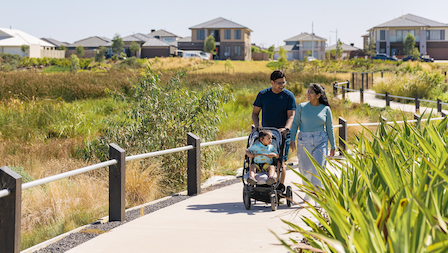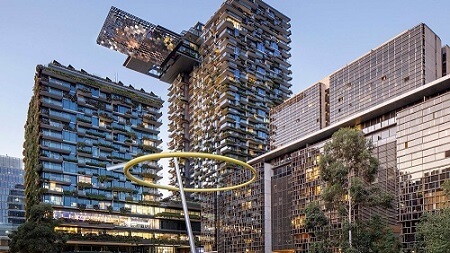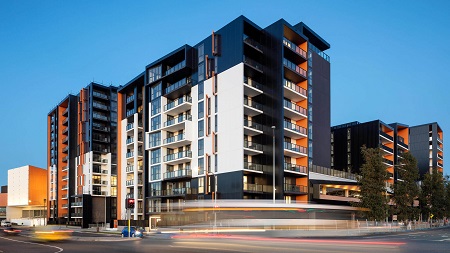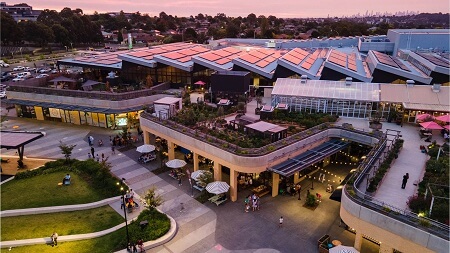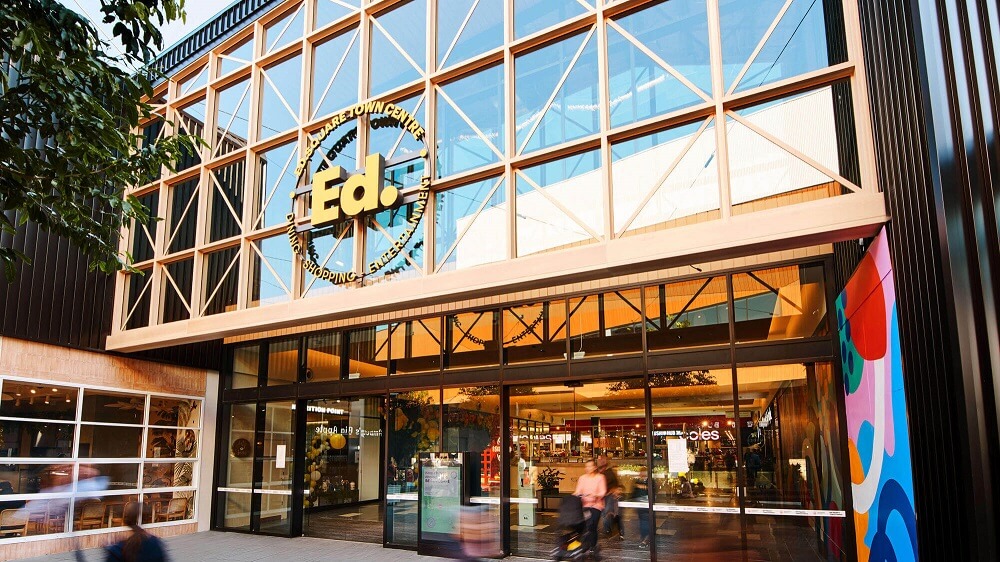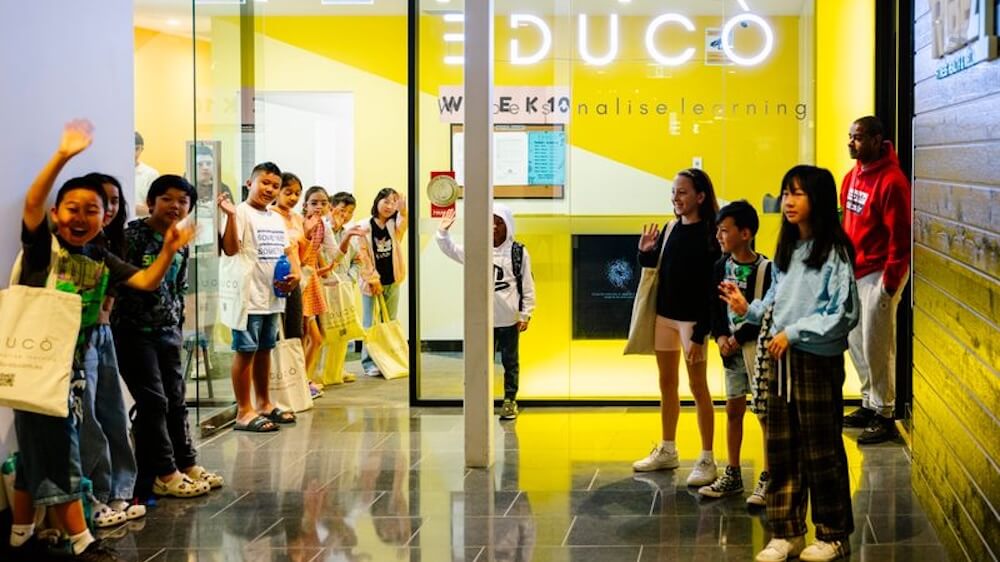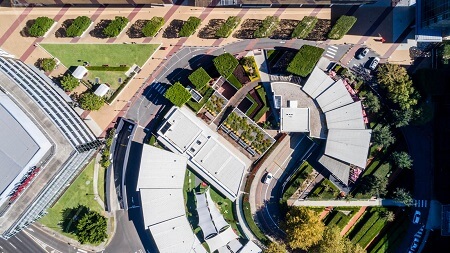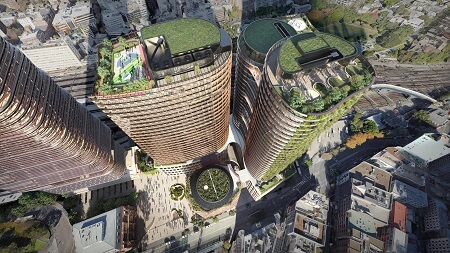100 years of evolution: Australia's transformation journey
Australia’s journey over the past century reflects a growing sense of confidence in our nationhood, commitment to social progress, and adaptability to change.
Looking back on 100 years of our history, we can’t help but marvel at the enormous transformation the country has undergone as well as the exciting future that lies ahead.
1920s
The Jazz Age
After the horror and carnage of the First World War, the 1920s were a time for celebrating life, joy, and freedom. The Jazz Age ushered in a bold, new modernity with radio widely available in people’s homes, the arrival of ‘the talkies’ in cinemas, and the proliferation of motor vehicles in the streets. Returning soldiers and a post-war marriage boom saw the suburbs flourish, with the Californian Bungalow the favoured style of home for many young families. The wild sense of optimism of the decade came to a sudden halt in October 1929, when the US stock market crashed, plummeting the world into The Great Depression.
1930s
The Depression Era
Bookended by the stock market crash of 1929 and the start of the Second World War in 1939, the 1930s were a bleak and difficult decade marked by hardship, unrest, and soaring unemployment. Despite one in three people unable to find work and significant social and political upheaval, Australians found solace in sport, celebrating the victories of champion racehorse Phar Lap and cricketing legend Donald Bradman.
1940s
A World at War
The first half of the 1940s saw Australia once more on a war footing. More than a million people served in the defence forces, including women filling jobs in the auxiliary forces and the Women’s Land Army. Despite rationing of fuel and food, frequent air raid warnings, and an attack on Darwin in 1942, the Australian mood was more hopeful and united in the war years than they were during the deprivations of the 1930s. Once peace was declared, Australia rebounded quickly with a post-war construction boom. To meet the nation’s labour demands, Australia declared itself open to migrants— but only from Britain and Europe. Applications poured in by the hundreds of thousands, with new suburbs and towns designed to house them.
1950s
The Golden Age
As peace and prosperity settled over Australia in the 1950s, the country made great strides in modernisation. The popularisation of the ‘Great Australian Dream’ of a detached home on a quarter acre block fuelled the growth of the suburbs. Car ownership was affordable and there were plenty of jobs to go around. Post-war migration from Italy, Greece, Poland, Germany, Lithuania, Ukraine, and the Netherlands helped to lift Australia’s population over 10 million people it into one of the world’s most successful multicultural countries.
1960s
A Shift in Mood
The 1960s ushered in a more socially conscious era as the post-war baby boomers reached adulthood. Campaigns for women’s equality, anti-Vietnam War demonstrations, and the rights of First Nations people were all flashpoints in a decade known for counterculture and civil rights. The Beatles toured, the world saw a man walk on the moon thanks to Australian satellites, and a Prime Minister disappeared. In the suburbs, new homes in the Mid-Century Modern style shared the streetscape with a proliferation of walk-up apartments known as ‘six-packs’.
1970s
The Personal Becomes Political
The 1970s were a tumultuous decade of social, cultural, and political change. The Whitlam Government sped through an extraordinary number of reforms, including free university education, equal minimum wage for women, a national health insurance scheme, First Nations land rights, establishing diplomatic ties with China, and a significant program of regional development. But, by 1975, the long post- war economic boom came crashing down under the weight of global oil shocks and the resulting stagflation.
1980s
Australia on the World Stage
Everything was bigger in the Eighties. Big hair. Big egos. Big booms and busts. It was a decade of Australian achievement—our first (and only) America’s Cup win, Crocodile Dundee broke box office records, and INXS were the biggest band in the world. The 1980s saw the rise of the ‘McMansion’, and at the other end of the scale, a renewed interest in townhome living. Bold social and economic reforms opened up Australian competitiveness, with Australian wool, wheat, iron ore, and coal finding new markets across Asia. The economy boomed and it was the era of big business and big takeover bids...until it wasn’t. The stock market crash of 1987 plunged Australia into recession, sending interest rates to a record high of 17.5%.
1990s
Technological Transformation
The 90s were a decade in which technology utterly transformed modern life. Beepers and palm pilots gave way to mobile phones and personal computers connected to each other through a new-fangled thing called the World Wide Web. Priscilla, Queen of the Desert transported everyone to the Australian outback while catchphrases from television shows like The Simpsons and Seinfeld entered the lexicon. Telecommunications, utilities, banks, and airlines were privatised and by the late 1990s the economy emerged from its recession to fuel a long housing boom.
2000s
The New Millennium
The new millennium dawned with hope and optimism. Australia hosted the Sydney Olympics, with gold medal winners Cathy Freeman and Ian Thorpe among the world’s fastest people on land and water. Australians walked for Reconciliation and paved the way for the National Apology to Stolen Generations. But the 2000s were also a decade where our sense of safety was shaken by terror bombings, war, bushfires, and riots. Social media arrived in the form of MySpace, YouTube, Facebook, and Twitter, while the iPhone quickly became the world’s most coveted consumer product. At home, there was nothing we loved more than a feature wall and a giant entertainment unit to house all our gadgetry.
2010s
Social Media and Social Movements
All decades are packed with every manner of major events and milestones. But if there’s one theme that consumed our attention and sparked debate during the 2010s, surely it was the issue of climate change. The hottest decade on record culminated in flood, cyclones, and the Black Summer fires— unprecedented in their ferocity and damage. Australians flocked to social media to have their say, not just about climate change, but #MeToo, marriage equality, and Black Lives Matter. We elected our first (and to date only) female Prime Minister, set trade and tourism records, and sat glued to our streaming services for the biggest TV show of the decade—Game of Thrones.
2020s
The Disruption Decade
The twenty-first century’s answer to the ‘Roaring Twenties’ began in unforgettable fashion—with the global spread of the COVID-19 virus. With home the new epicentre of work, education, entertainment, and recreation, Australians adapted and earned a new appreciation for their local communities and neighbourhoods. By 2023, 44% of us were still working from home or in a hybrid model, demonstrating a significant shift in attitude about where we need to be in order to be productive in our jobs. With much of the decade still ahead of us, major issues like housing affordability, climate change, and representation and recognition of First Nations people will likely remain front and centre.
See more articles on



